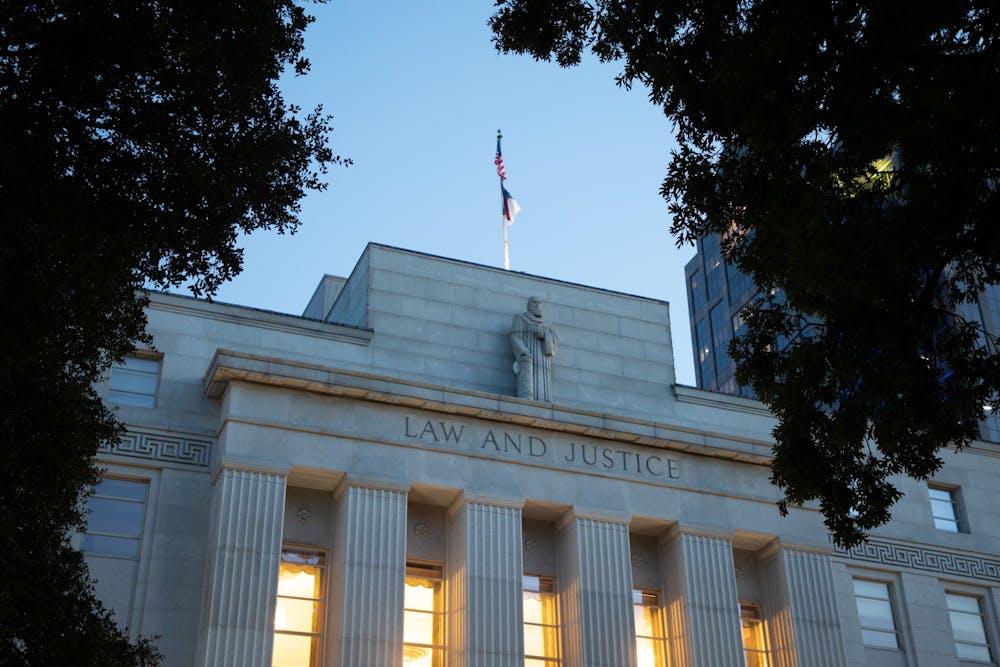This year, partisan gerrymandering became effectively legal in North Carolina with the Harper III decision in the N.C. Supreme Court. Now, the N.C. General Assembly can draw maps without review of the state supreme court.
The Harper v. Hall series took the main stage in N.C. politics with the third case in the series, Harper III, being decided this year.
In Feb. 2022, the N.C. Supreme Court found in Harper I that the maps for congressional districts, drawn by Republican legislators, had an extreme GOP advantage. The court then ordered the redrawing of the maps.
Later, in Dec. 2022, court ruled in Harper II that the N.C. Senate maps were also gerrymandered to favor Republicans.
The new Republican majority court overturned the previous two Harper cases in April with Harper III, which ruled partisan gerrymandering as not justiciable — meaning the General Assembly’s decisions to redraw maps that favor one political party over others cannot be overridden by state courts.
In June, the U.S. Supreme Court ruled in Moore v. Harper — a case appealed from the state supreme court Harper cases — that the elections clause in the U.S. Constitution does not give state legislatures full control of federal elections.
This ruling rejected independent state legislature theory, which asserts that state legislatures should have exclusive authority in establishing rules for federal elections unless Congress has intervened.
But, the appeal that turned into Moore v. Harper was accepted by the U.S. Supreme Court before Harper III was decided, and the case was finalized after Harper III. Moore v. Harper ultimately had no impact on North Carolina because Harper III ruled that partisan gerrymandering is not justiciable under the state constitution — Moore v. Harper had concluded that state courts could still interpret their state constitutions in partisan gerrymandering claims.
Paul Newby, the N.C. Supreme Court chief justice, wrote in his Harper III opinion that partisan gerrymandering does not violate the state constitution’s free elections clause, which states that “all elections shall be free.”




